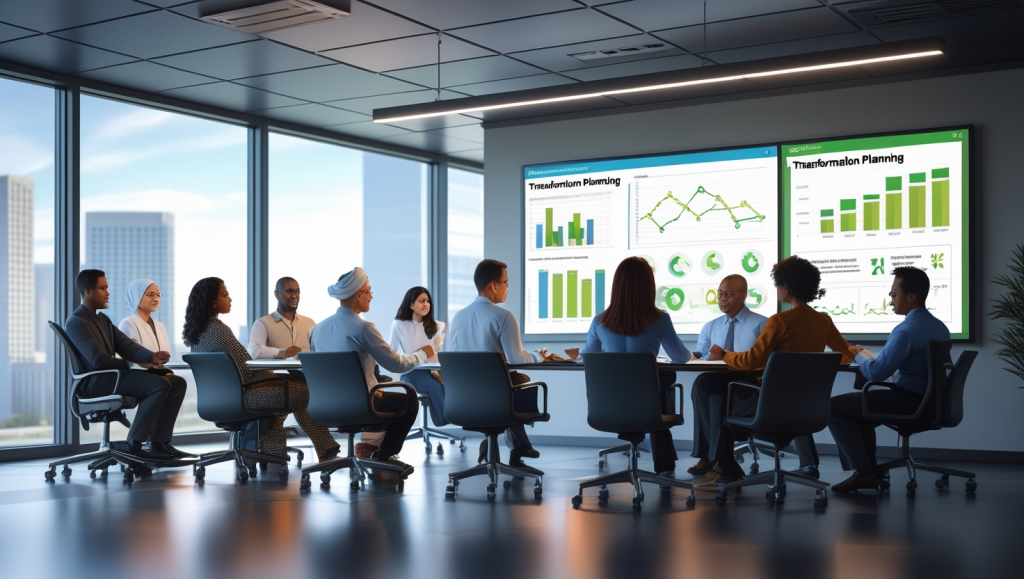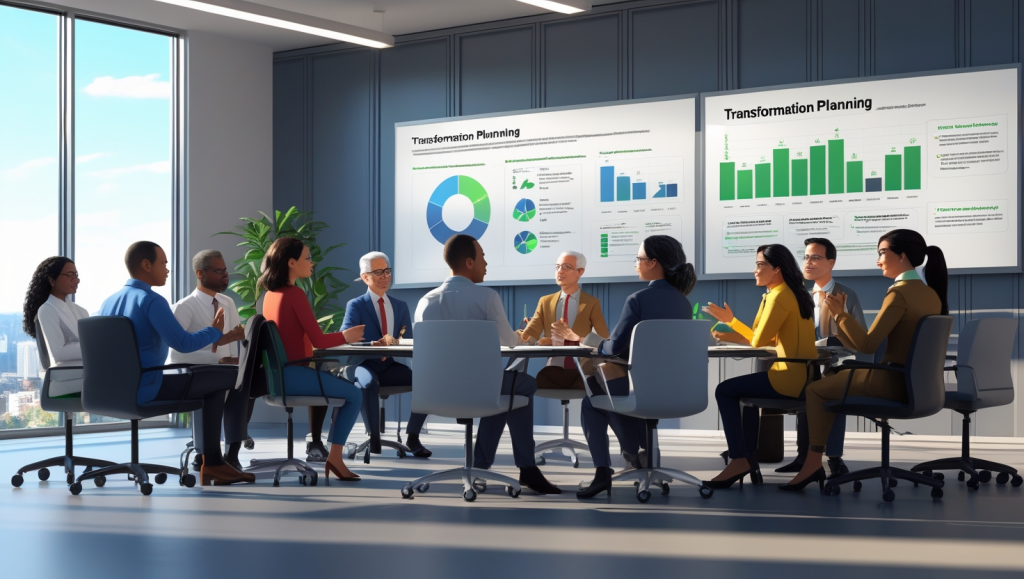SUSTAINABLE LEADERSHIP DEVELOPMENT PROGRAM
Elevating Leadership Competencies for a Better Tomorrow
PROGRAM DESCRIPTION

Program Overview:
This program is designed to cultivate leaders who can navigate complex challenges with integrity, purpose, and a systemic perspective. Participants will develop competencies that align with sustainable practices, ethical decision-making, and transformative leadership.
A Leadership Development Model that can be adopted on all levels, and in all sectors of society; to enable efficient delivery of the Social Contract, through Sustainable Governance & Resource Management.
A comprehensive educational training and developmental program that addresses a wide range of sustainable leadership topics from a Global perspective; and is flexible enough to be tailored to the specific needs of a select sector or clientele.
CRITICAL SUCCESS FACTORS
- Acceptance and Confirmation of the reality and urgency of our current conditions and the need for immediate change.
- Crystalizing the Intent to Change to Sustainable Systems and Practices in all sectors of society.
- Effectively Integrating Sustainable Principles with Educational and Professional Development Programs.
METHODOLOGY
Influencing the decision-making paradigm and process by emphasizing:
- The urgent need for systemic change.
- The challenges with our current model.
- The collective benefits of adopting a mindful approach to decision-making.
- The collective benefits of embracing and integrating sustainable principles as a strategic priority.
Course Outline

Module 1: Foundations of Sustainable Leadership
Objectives:
- Understand the principles and importance of sustainable leadership.
- Recognize the interconnectedness of environmental, social, and economic systems.
- Identify personal values and how they align with sustainable practices.
Key Topics:
- Definition and scope of sustainable leadership.
- The triple bottom line: People, Planet, Profit.
- Ethical frameworks and decision-making models.
- Case studies of successful sustainable leadership.
Module 2: Mindful Decision-Making
Objectives:
- Develop self-awareness and emotional intelligence.
- Apply mindfulness techniques to leadership scenarios.
- Enhance decision-making processes through reflective practices.
Key Topics:
- Mindfulness and its role in leadership.
- Emotional intelligence competencies.
- Techniques for reflective decision-making.
Managing stress and fostering resilience.
Module 3: Navigating Systemic Challenges
Objectives:
- Understand complex systems and their dynamics.
- Identify leverage points for systemic change.
- Develop strategies to address systemic issues within organizations.
Key Topics:
- Systems thinking principles.
- Mapping organizational systems.
- Identifying and addressing root causes of systemic problems.
Collaborative approaches to systemic change

Module 4: Purpose-Driven Leadership
Objectives:
- Align personal and organizational purpose.
- Balance stakeholder interests with ethical considerations.
- Foster a culture of purpose and meaning within teams.
Key Topics:
- Defining and articulating purpose.
- Stakeholder analysis and engagement.
- Ethical dilemmas and decision-making.
- Building purpose-driven organizational cultures.
Module 5: Integrating Spiritual Intelligence
Objectives:
- Explore the concept of spiritual intelligence in leadership.
- Cultivate inner wisdom and ethical clarity.
- Incorporate spiritual intelligence into leadership practices.
Key Topics:
- Understanding spiritual intelligence (SQ).
- Developing self-awareness and inner guidance.
- Aligning actions with core values and ethics.
- Fostering trust and authenticity in leadership.
Module 6: Conflict Management and Resolution
Objectives:
- Identify sources of conflict within organizations.
- Develop effective communication and negotiation skills.
- Implement conflict resolution strategies that promote collaboration.
Key Topics:
- Types and causes of organizational conflict.
- Active listening and empathetic communication.
- Negotiation techniques and conflict resolution models.
- Building a culture of constructive feedback.
Module 7: Leading Systems Transformation
Objectives:
- Design and implement strategies for systemic change.
- Engage stakeholders in transformative initiatives.
- Evaluate the impact of systemic interventions.
Key Topics:
- Change management theories and models.
- Collaborative leadership and stakeholder engagement.
- Measuring and sustaining systemic change.
- Case studies of successful systems transformation.
Module 8: Embracing Collective Reality
Objectives:
- Acknowledge shared global challenges and responsibilities.
- Foster a collective consciousness towards sustainability.
- Promote inclusive and equitable leadership practices.
Key Topics:
- Global sustainability challenges and their implications.
- The role of collective consciousness in leadership.
- Equity, diversity, and inclusion in sustainable leadership.
- Building alliances for collective impact.

Program Outcomes:
Upon completion, participants will:
- Exhibit enhanced self-awareness and ethical clarity.
- Apply systems thinking to organizational challenges.
- Lead with purpose, mindfulness, and spiritual intelligence.
- Effectively manage conflicts and drive systemic change.
- Foster inclusive and sustainable organizational cultures.
PROGRAM DELIVERY
- The course content is designed for either virtual classroom or personal delivery.
- Program content can be tailored and delivered to stakeholders through alternative solutions such as: Coaching, Facilitation, Collaboration, or Consultation.
